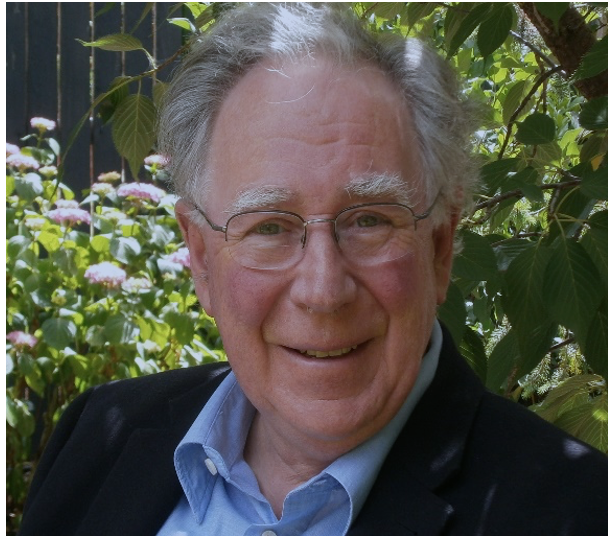PAUL COLLINS. The On-going Threat of Fundamentalism
November 26, 2018
Religious fundamentalism is having an increasing influence on democratic societies, most obviously in the US, but also here in Australia. The so-called religious freedom debate has re-ignited the culture wars that originate in fundamentalist demands to maintain a kind of purity of doctrine. Previously in Australia church and state had worked out a modus vivendi_, a way of operating in which each respected the others sphere. A fundamentalist approach to religious freedom endangers that and it is having a truly baleful influence in our society._
While modern fundamentalism originated in conservative US Protestantism in the early twentieth century, nowadays its influence can be found across the religious spectrum and even among literalist secularists. It began as a response to liberal Protestantism and to the development of an historical and literary-critical approach to biblical interpretation.
Fundamentalism originates in a personal conversion experience of salvation and accepts the literal inerrancy of scripture with a strong apocalyptic element including expectation of the proximate second coming of Christ to Jerusalem; thats why its pro-Zionist. It is opposed to Darwinian evolution, supporting so-called creation science, it is vigorously missionary, politically involved in reactionary politics and wages unceasing war against religious liberals and modernists, as well as secularists. There is also a significant lack of compassion and the absence of a tradition of Christian pastoral care.
Fundamentalist churches tend to be sectarian in-groups and the link between fundamentalism, extremism and violence should not be under-estimated. This originates in their fear that religion is being marginalized in our society by secularism and science.
Fundamentalistsand to a lesser extent Pentecostals–dismiss serious theological scholarship and biblical analysis. They are locked into an attitude that protects them from having to budge from their pre-established certainties. Their rejection of dialogue is stubborn; they are right, you are wrong. Their certainty is based on a presumed ready access to the divine law. This makes it very difficult to enter into discussion with them.
Pentecostal groups find common cause with fundamentalists in that they have no sense of the sheer otherness of God. They have domesticated the divine and see God constantly interfering to suspend the laws of nature to suit their own wishes and velleities. Thus, all their talk about miracles, cures, divine interventions and the easy adscription of evil and illness to the devil and possession. In this context it is easy to reduce mental health and psychological problems to the supernatural.
Given this context it is essential that mainstream churches clearly and unequivocally separate themselves from this pseudo theology. Unfortunately, a number of Australian Catholic leaders have failed to do this. Their simplistic stances on socio-ethical issues relating to gender, sexuality and the end of life including euthanasia have seen them make common cause with, or adopt positions close to fundamentalism. In the process they have betrayed the long experience and subtlety of the Catholic moral tradition in dealing with complex ethical issues.
After the toxic sectarianism of the nineteenth century, Australians have worked out a dynamic and respectful relationship between church and state. Almost uniquely in the world, we have evolved a way in which the state funds much of the educational, health care and social welfare ministries of the churches, while they, in turn, respect the role of the state in developing policy and monotering delivery of services. Recently this has become endangered by the dogmatism being voiced in the freedom of religion debate. Mind you, fundamentalism is a two-way-street: secularists can also be fundamentalist with people claiming endless subjective rights to this, that and the other thing, with no corresponding responding respect for the common good.
Religious fundamentalism is really an absence of faith. It is a desperate search for absolute certainty. In contrast, genuine faith is not certainty. It demands a radical commitment to the search for an unseen God, with the believer having to venture out into a darkness inscrutable to sight, as the great Spanish mystic and lyric poet, Saint John of the Cross says. He continues:
I went without discerning
And with no other light
Except for that which in my heart was burning.
Here John takes us into the essence of faith. It involves not only commitment and risk, but it is more about poetry than dogmatics.
One of the great privileges of my life was to have personally known priest-cosmologist and cultural historian, Thomas Berry, a genuine polymath if ever there was one, who died in 2009 aged ninety-four. Explaining religion in an interview with me for the ABC radio, he said: Religion is poetry, or it is nothing! How can a person be religious without being poetic? Certainly, God is a poetit is God who made rainbows, butterflies and flowers. It is the most absurd thing in the world to think of dealing with religion in any other way than poetry and musicTake Saint John of the Crossall the great mystics have been poets. You cannot do it any other way.
Religion is poetry or it is nothing. The most profound thing lost in fundamentalism and pentecostalism is poetry, the metaphorical, symbolic nature of our experience of transcendence and God. Without that rich sacramentality, that plunge into a darkness inscrutable to sight, there is little or nothing of genuine faith. Fundamentalism is religion that has degenerated into crass literalism.
Historian and writer Paul Collins last book was Absolute Power (2018).
